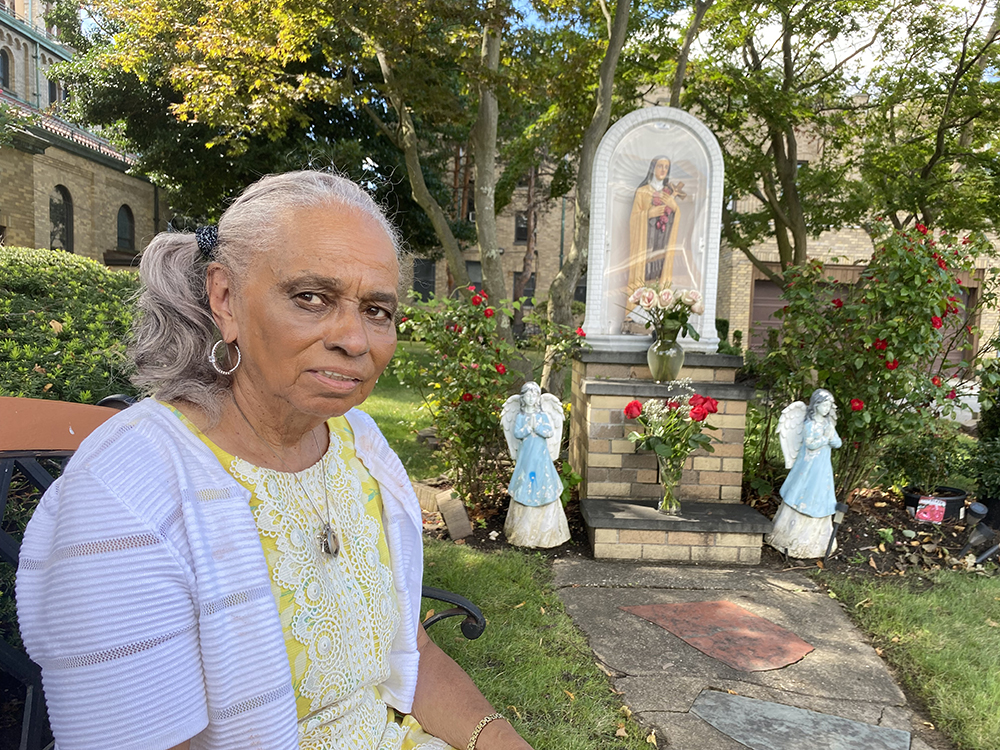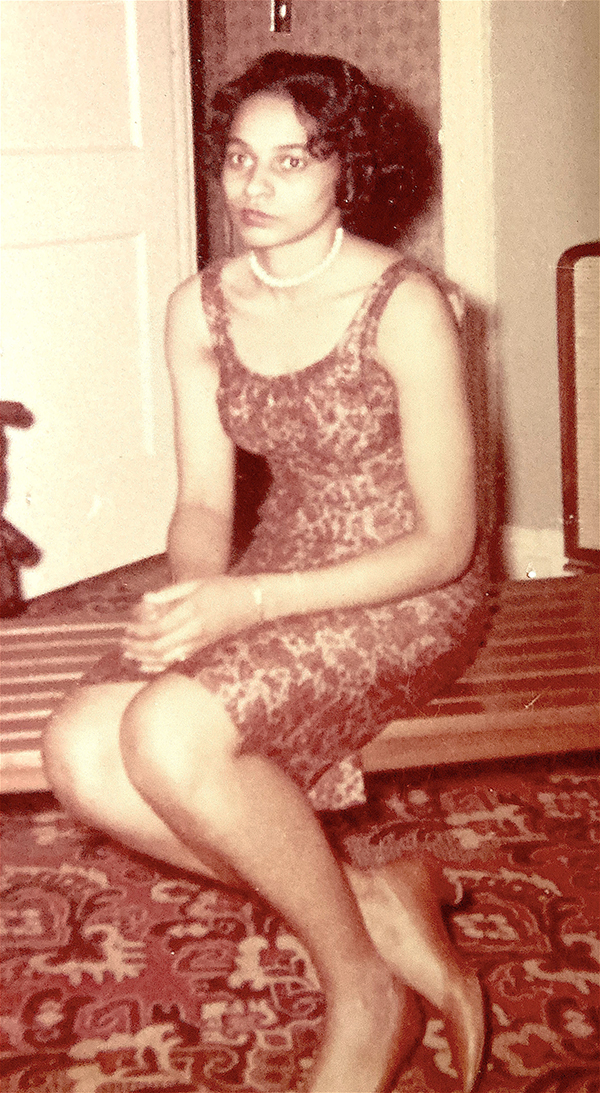
CAMBRIA HEIGHTS — In the early 1960s, Helen Cureton, originally from Greenville, South Carolina, was in her 20s, single, and working as a radiology technician in Queens.
But early on Wednesday, Aug. 28, 1963, she packed a sack lunch and boarded a charter bus headed to the nation’s capital to join the March on Washington.
The march — a pivotal moment in the Civil Rights Movement in the United States — was marked by the rallying “I Have a Dream” speech delivered by Dr. Martin Luther King.
These days, Cureton resides in West Hempstead, but she has been a member of Sacred Heart Parish in Cambria Heights for about 40 years. She also serves on the advisory committee for the Vicariate Office of Black Catholic Concerns for the Diocese of Brooklyn.
She recalled how her desire to join the march stemmed from her childhood, when “Jim Crow” rules prevailed in the South. These measures kept black people segregated from the public amenities white people used and enjoyed.
“You always wanted to be on the other side,” Cureton said. “They had a zoo there in Greenville. My sister and I wanted to go, but we couldn’t. They had a swimming pool, but no, not for us.
“So I’m very familiar with how black people were treated before the Civil Rights Movement. But even in New York, you still had prejudices.”

Cureton, however, didn’t know at the time that the 1963 event would become historic.
“When you’re in your 20s, you want to do things that you haven’t done before,” Cureton explained. “You just think this is going to be an exciting trip.” That changed as she rode the bus south.
“There was nothing but buses all the way down,” she recalled. “All charter buses, and they were coming in from every direction. That was real eye-opening for us.”
Cureton traveled with her friend, another young woman from New York City. When they got off the bus in D.C., they joined a quarter of a million people moving toward the National Mall. Their stroll came to a halt when the crowd, facing the Lincoln Memorial grew so thick they could move no more.
Cureton said she felt fortunate that her spot shaded her from temperatures that had risen to the low 80s. But she was amazed to see people climb into the trees for better views of the speakers’ podium, situated just below the statue of Lincoln.
A large public-address system carried the speeches of civil rights leaders John Lewis, Roy Wilkins, and Whitney Young as they called for fair housing, jobs, and an end to segregated schools.
Opera Singer Marian Anderson sang the spiritual “He’s Got The Whole World in His Hands” and folk singer Joan Baez performed “We Shall Overcome.”
However, it was the words of Dr. King that never strayed from Cureton’s memory.
“I have a dream that my four little children will one day live in a nation where they will not be judged by the color of their skin but by the content of their character. I have a dream today.”
And, finally:
“And when this happens, and when we allow freedom ring, when we let it ring from every village and every hamlet, from every state and every city, we will be able to speed up that day when all of God’s children, Black men and white men, Jews and gentiles, Protestants and Catholics, will be able to join hands and sing in the words of the old Negro spiritual: Free at last. Free at last. Thank God almighty, we are free at last!”
Cureton said the euphoria was undeterred on the ride home.
“Several people started singing ‘free at last, free at last’ on the bus,” she recalled. “I didn’t know the song myself, being a Catholic. It was a Protestant song, but I joined in as best I could. I got the feel of it once they started. Everybody was really on a high because we just felt great — that things were gonna change.”
She is retired now, but she is still eager to talk about the Civil Rights Movement. She noted that events in recent years, like the murder of George Floyd in 2020, show the struggle continues.
In her retirement, Cureton brings holy Communion to the sick, and serves on the committee for scouting in the diocese. Whenever asked, she’ll gladly recount the March on Washington.
“It was absolutely an event of a lifetime,” she said.
